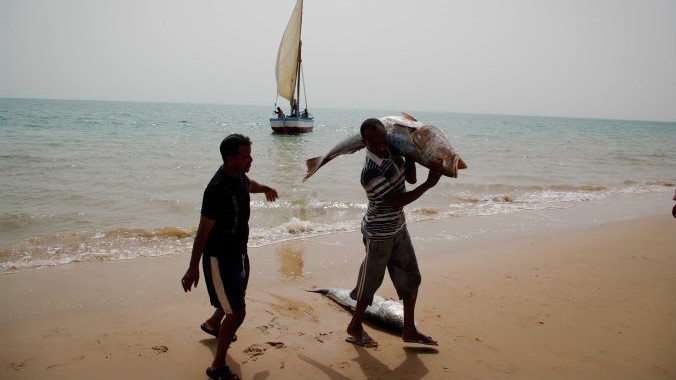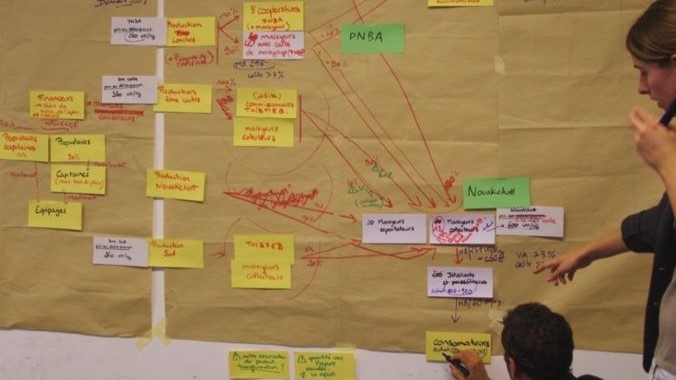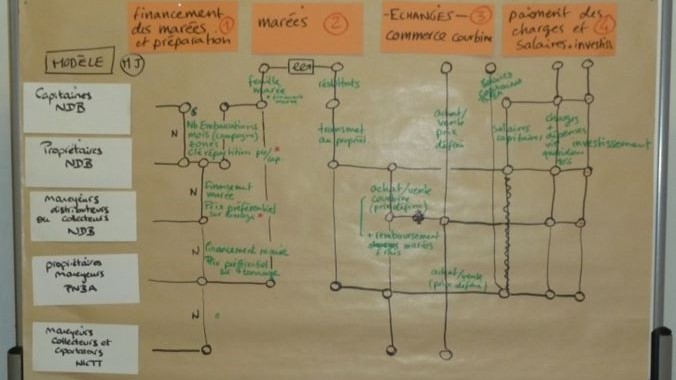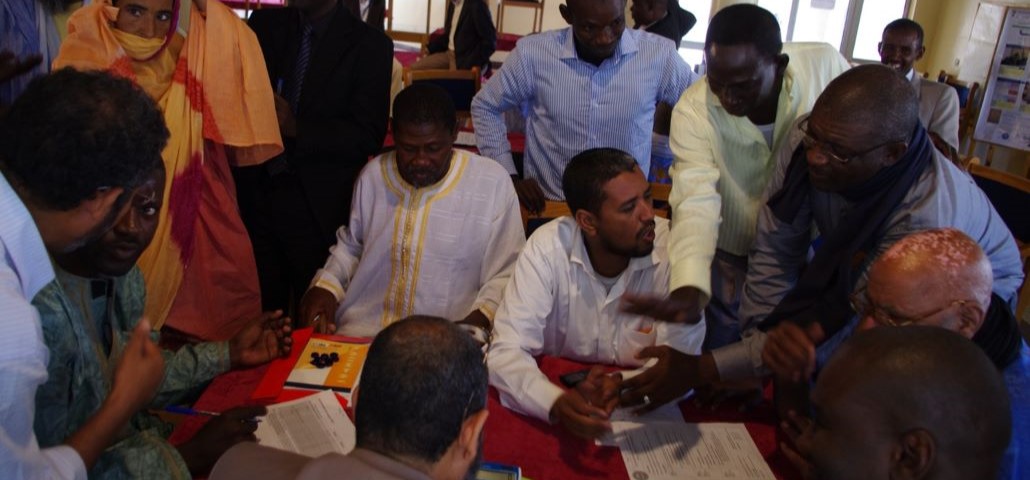Context
In 2011, the Sub-Regional Fisheries Commission of West Africa launched a project, funded by the French Development Agency (AFD), to support the creation of Fisheries Management Plans (PAP) for the sub-region. Within this framework, the IUCN (International Union for Conservation of Nature) was tasked with supporting the Management Plan for the Meagre Fishery (Argyrosomus regius) in Mauritania. To achieve this, they initiated a pilot project using the Companion Modeling approach (ComMod) to facilitate stakeholder consultation in this process.
The challenges are numerous: a lack of observational and scientific data, conflicts between different fishing fleets, illegal fishing within the Banc d’Arguin Marine Protected Area. All of this is happening in a tense Mauritanian context, with interethnic conflicts, extreme poverty among certain populations, and the highly concentrated downstream economic chain.

195 participants
Intervention team composed of 8 people
5 field missions
12 months
20 workshops
8 role-playing sessions
Public participation on a national scale, involving all representatives of the fishery sector.
Identification of key problems in the fishery.
Drafting of the PAP project based on recommendations from the public participation.
Our mission
Lisode was initially mandated to organize public participation with stakeholders who are typically excluded from the PAP development process, using the ComMod method, in parallel with institutionalized consultations. In fact, this work became the core of the PAP public participation process, involving all actors in the sector. The final workshop, which involved testing management scenarios with industry stakeholders through role-playing exercises, and the resulting recommendations, formed the foundation of the PAP project.

Impacts and results
Despite the extensive Mauritanian coastline and the geographic dispersion of all fishery sector actors, we successfully included all of them in the sector’s modeling process, and they all participated in the final workshop that supported the PAP development. Beyond the shared diagnosis agreed upon by all stakeholders, and the mutual understanding of their respective constraints that emerged from it, this workshop helped to identify the real causes of illegal fishing, the significant economic disparities between fleets, fish wholesalers, and shipowners, and assess the relevance of certain management tools (e.g., Multi-stakeholder Commission for setting the first-sale price, auction markets), while highlighting the inefficiency of others (e.g., fishing licenses). It also shed light on the impact of feedback effects between different PAP (e.g., Mullet, Meagre, etc.) and identified areas that warrant further scientific investigation (such as the migration cycle of the Meagre). The PAP project was drafted accordingly by the Mauritanian Institute of Oceanographic and Fisheries Research and was submitted to the Prime Minister.


